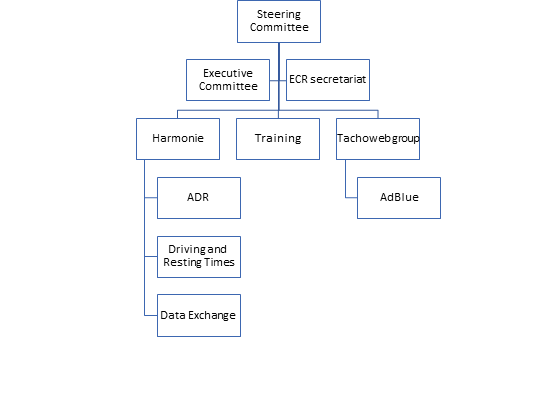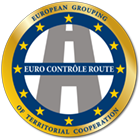Structure
ECR is transparantly structured.
 The STEERING COMMITTEE bears responsibility for all ECR activities and is composed of representatives of the ECR member states. This Steering Committee meets at least twice a year in the country that holds the presidency at that moment.
The STEERING COMMITTEE bears responsibility for all ECR activities and is composed of representatives of the ECR member states. This Steering Committee meets at least twice a year in the country that holds the presidency at that moment.
The executive body or EXECUTIVE COMMITTEE consists of the current, former and future presidents and can be expanded to six members. The presidency rotates on an annual basis. The committee prepares the practical implementation of decisions of the Steering Committee. In addition, this body is responsible for the external impact of ECR in its contacts with other organisations and persons.
The ECR SECRETARIAT coordinates all of these activities and plays a facilitating, supporting and sometimes also a diplomatic role in this cooperation.
The TRAINING working group focuses primarily on the training of inspectors by organising multilateral and bilateral exchanges. The main objectives of this initiative are to increase knowledge about inspection procedures and national and international regulations, but attention is also devoted to teambuilding and languages.
The HARMONIE working group includes the operational and most visible aspect of the ECR functioning, namely the coordinated international road checks. Second, it is also working constantly on data exchange concerning violations, risk companies and fraud.
In addition the working group’s attention is primarily paid to streamlining inspection procedures, the transposition of European regulations, sanctions and techniques. The results of this work ease the tasks of the inspectors and make European roads much safer.
The TWG group (Tacho Web Group) is a joint working group of ECR and TISPOL. Its original focus is the guarding and updating the information on digital tachograph fraud (https://www.tispol.org/members).
Over the years the scope of the working group has widened to include the following joint ECR-TISPOL ambitions:
1. Discuss problems of harmonised reading and application of the concerning regulations;
2. Formulate recommendations on the best way to enforce these regulations;
3. Establish a common and harmonized interpretation and enforcement of the provisions laid down in these regulations;
4. Legislative support and instruction to enforcement bodies (on demand);
5. Deliver best enforcement practices when controlling driving times and rest periods of professional drivers on European roads;
6. Contribute in the proper implementation of the Regulations, as issued by the European Commission.
